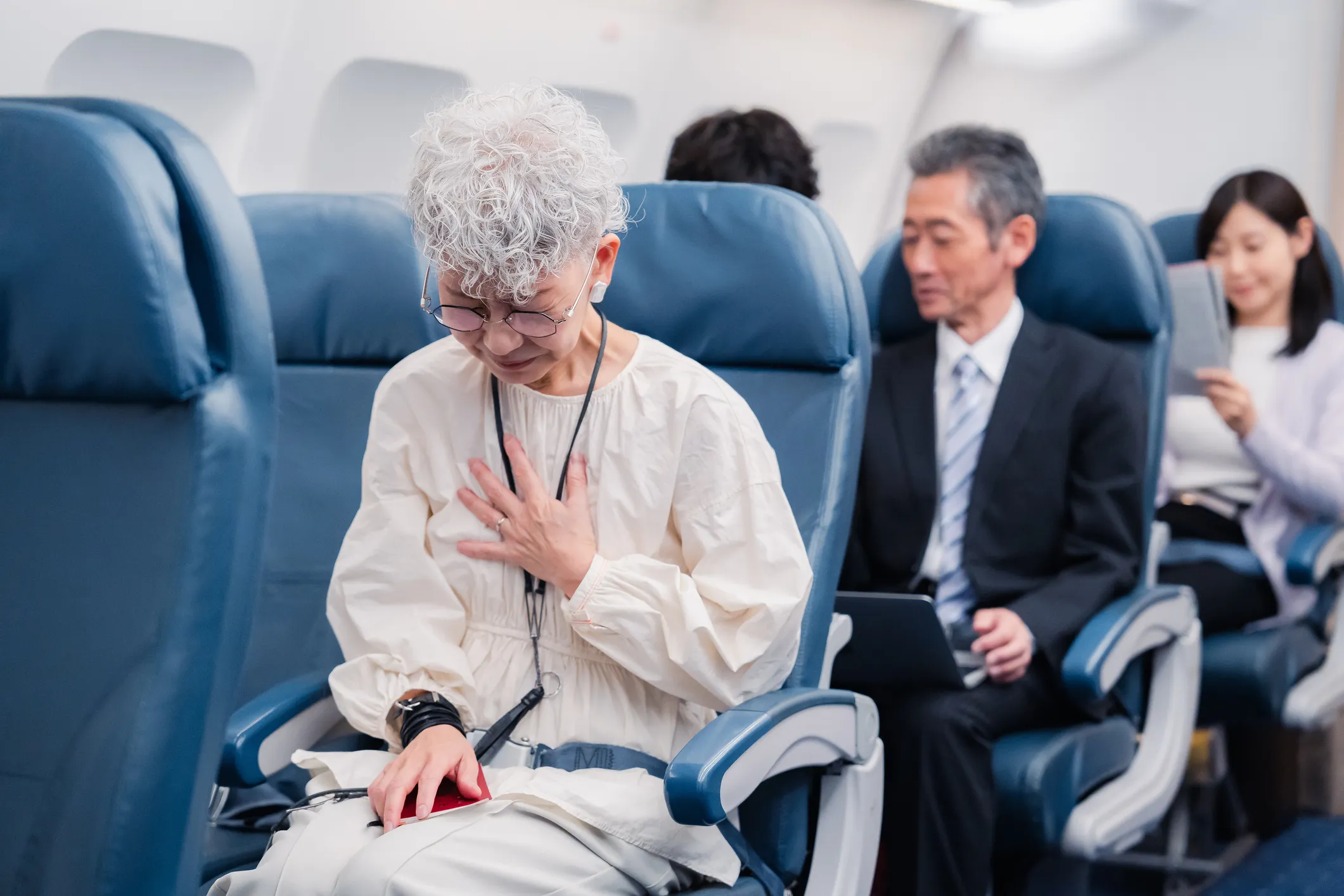Boarding a flight may be exciting when it’s for a vacation or visiting family members. If you travel for work, you may find it less thrilling and look forward to getting off the plane. However, if you experience a medical event onboard, you could be in for a terrifying situation with long-lasting consequences.
While you might be able to get help from the crew or a volunteer healthcare practitioner, if you suffer injury or illness because of insufficient care, you will naturally want answers. You may feel you need the help of a skilled West Palm Beach medical malpractice lawyer to understand who bears liability for in-flight medical emergencies.

How often do in-flight medical emergencies occur?
According to the American Family Physician Journal (AFPJ), up to 70% of medical situations on a plane involve fainting and nausea and are resolved by the flight crew. In cases of heart attack or similar medical emergencies, the crew may ask for volunteers with relevant training and experience.
The Centers for Disease Control and Prevention (CDC) reports that an in-flight medical emergency happens in just one out of every 600 flights. However, the risks for victims can be substantial if the volunteer does not have sufficient training to manage the problem. Nonetheless, physicians and other healthcare providers are protected in U.S. domestic flights by the Aviation Medical Assistance Act (AMAA).
What is the Aviation Medical Assistance Act?
The Aviation Medical Assistance Act (AMAA) of 1998 provides legal protection for medical practitioners who respond in good faith to emergencies onboard aircraft. Physicians, nurses, EMTs, and paramedics are shielded from medical malpractice claims, civil lawsuits, and the resulting damage verdicts.
Because the environment is small and lacks the equipment of a full hospital, volunteers are limited to the airline-supplied in-flight medical kit. These defibrillators, first aid materials, and other items are meant for triage care and may be insufficient for a specific patient’s needs.
Nonetheless, if a practitioner commits gross negligence or willful misconduct, they are not protected under the AMAA. In situations like this, your medical malpractice lawyer can investigate and determine if you have a valid claim.
Are doctors and nurses required to provide medical assistance?
Medical practitioners, especially physicians, take an oath to help those in need. However, they are actually not legally obligated to provide assistance. In fact, they cannot render aid unless they are asked by flight attendants in the United States because the Federal Aviation Administration considers the crew to be the approved first responders.
In addition, a provider may choose not to volunteer if they have been drinking alcohol or taking a sleeping aid that might hinder their judgment and abilities. Once they have agreed to provide assistance, the flight crew must verify their credentials, and the volunteer must perform treatment to the best of their ability within the given situation.
The volunteer medical provider must continue to treat the patient within reason or notify the flight crew if the circumstances are beyond their capabilities. The crew is usually in touch by radio with emergency specialists on the ground to provide additional guidance.
Potentially liable parties for an in-flight medical emergency claim
Although the goal of the AMAA is to avoid unnecessary lawsuits against practitioners, the act doesn’t prevent them. Passengers are still able to pursue a claim if they feel the volunteer provider didn’t make every effort to uphold the standard of care in the specific situation.
The AMAA also doesn’t apply if the volunteer was not actually a medical provider. For instance, suppose someone pretended they were a doctor but actually was not. The flight crew may not have requested identification in the interest of time and allowed an unqualified person to treat you. In this case, both the fake doctor and the attendants could be at fault for your injuries or illness.
The airline itself can also be to blame if it fails to take appropriate action. Suppose you suffer an acute case of appendicitis, but the airline instructs the pilot not to change course or turn around. You spend multiple hours in excruciating pain until the plane reaches its destination, and you can receive emergency treatment. Your resulting injury and sickness could qualify for a personal injury suit against the carrier.
Speak with a qualified West Palm Beach medical malpractice attorney today
Understanding your options after you’ve faced a medical emergency on an airplane can be confusing and overwhelming. While you focus on getting better, trying to determine who is at fault and how to seek justice through insurance or lawsuit claims can be more than you are able to manage.
Instead of wondering whether you have a valid claim, schedule a meeting with a Florida medical malpractice lawyer at Lytal, Reiter, Smith, Ivey & Fronrath to learn more about how the AMAA or other laws might apply to your case. Our team is ready to listen with compassion, skill, and experience in interpreting state and federal law to our client’s advantage.
Contact us to schedule your free consultation by calling (561) 655-1990 or using our online form today.




